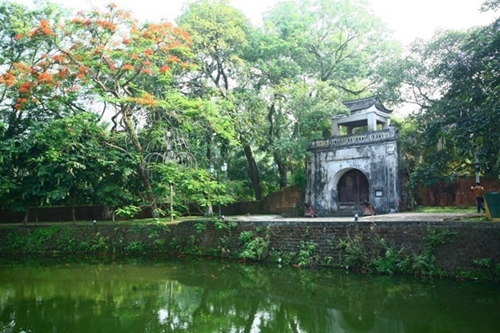The move aims to tap on potential and uphold cultural heritage in the area, thereby contributing to socio-economic development, especially tourism.
    |
 |
|
A corner of Son Tay old fortress citadel (Photo courtesy of vov.vn) |
The Son Tay - Xu Doai Tourism Year will look to capitalize on cultural tourism potential in combination with resort and adventure tourism sites in the area and neighboring localities such as Duong Lam ancient village, Va shrine, Mia pagoda and Dong Mo Lake.
The Son Tay fortress was a military base built in 1822 in the reign of King Minh Mang to protect Thang Long Imperial Citadel.
The 820-meter-long walking line stretches over Son Tay town's Pho Duc Chinh and Phan Chu Trinh streets, the outer road of Son Tay ancient fortress, the flower garden in the town's centre, the central flower garden area square, the front yard of the town's cultural center and town's stadium square.
It is scheduled to open to the public on weekends, with contemporary art performances, street music and folk dances.
Visitors will also have a chance to experience unique culinary services, buy souvenirs and typical products of Son Tay at the pedestrian zone.
Son Tay is one of the five satellite towns of Hanoi with the main functions of cultural, historical, ecological tourism, commercial services on the basis of preserving traditional cultural heritage.
Currently there are three pedestrian zones in Hanoi, namely Hoan Kiem Lake, Hanoi’s Old Quarter and Trinh Cong Son street.
Source: VNA